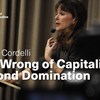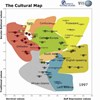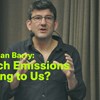treated
Against the De Minimis Principle
Risk Analysis, https://doi.org/10.1111/risa.13445 Abstract According to the class of de minimis decision principles, risks can be ignored (or at least treated very differently from other risks) if the ri
"Try to Balance the Baseline": A comment on "Parent-teacher meetings and student outcomes: Evidence from a developing country" by Islam (2019)
European Economic Review Abstract Islam (2019) reports results from a cluster randomized field experiment in Bangladesh that examines the effects of parent–teacher meetings on student test scores in pri
Debunking and Disagreement
Noûs, (Early View), DOI: 10.1111/nous.12135. Introduction A familiar way of supporting skeptical doubts about the beliefs in some area, such as ethics orreligion, is to provide a “debunking argument” agaiway is to appeal to the disagreement that occurs in the area.2 These types of challenge areoften treated separately and there is not much overlap in the literature they have given rise to.Yet, as they pursue the same conclusion—that the target beliefs are not (fully) justified andthat we should reduce our confidence in them—one might well wonder how they are related.Are they entirely independent or do they interact in non-trivial and interesting ways? That isthe question I shall explore.
Women in violent extremism in Sweden
Nordic Council of Ministers, 54 pages Women have generally been treated as “side shows” in the literature on war,terrorism and violent extremism and have thus been given scant scholarly attention.In mato be framed as unwitting, passive agents or brainwashed victims pulled into violentextremist movements only through the relations of their husbands, boyfriends, orfathers.

Chiara Cordelli: The Wrong of Capitalism Beyond Domination
Political philosophy is witnessing a revival of critiques of capitalism. Against those who argue that capitalism is unjust because of (i) its distributive outcomes, (ii) the oppression of workers at t
Implicit bias, epistemic injustice, and pragmatic stereotypes
The Philosophical Quarterly Abstract Members of stigmatized social groups are often treated unjustly in conversation. Fricker’s influential work on epistemic injustice addresses this topic, according to

World Values Survey Cultural Map
This animation tries to describe the change in values in different countries over a period of more than 30 years. Read more about the map at www.worldvaluessurvey.com. The animation is created in c
Christian Barry: Which emissions belong to us?
Place:Holländargatan 13, Stockholm, or online.REGISTERAbstractTo address climate change we need to reduce net emissions globally. Most international processes and frameworks have involved seeking to g

Which emissions belong to us?
To address climate change we need to reduce net emissions globally. Most international processes and frameworks have involved seeking to get countries to make cuts to their emissions. Net zero has rec
What's (not) underpinning ambivalent sexism?: Revisiting the roles of ideology, religiosity, personality, demographics, and men's facial hair in explaining hostile and benevolent sexism
Personality and Individual Differences, Volume: 122, pp. 29-37. doi.org/10.1016/j.paid.2017.10.001 Abstract Ambivalent sexism is a two-dimensional framework that assesses sexist and misogynous attitudes








